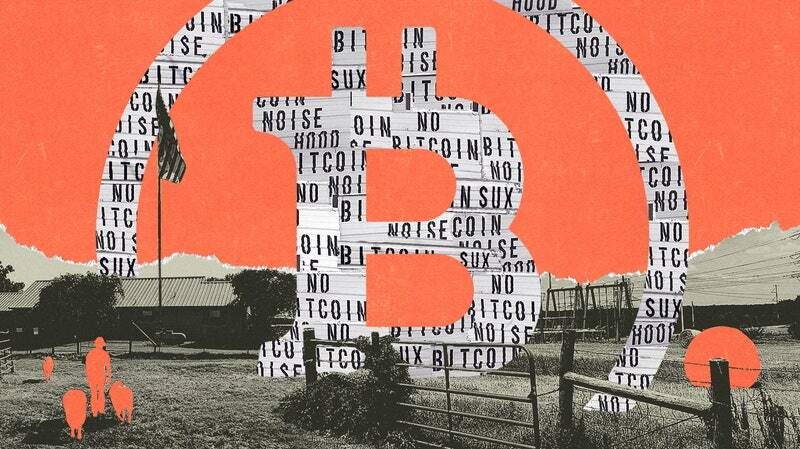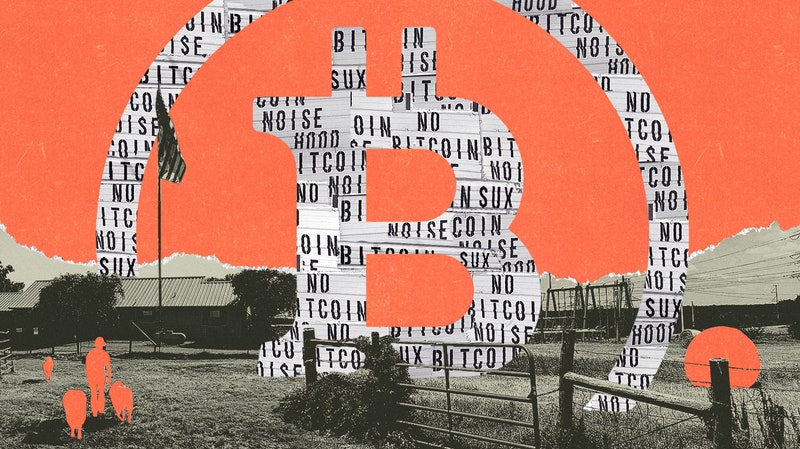 ERIC AND DONALD Trump Jr., the sons of former president Donald Trump, have pledged to “make finance great again” with a new family-run crypto endeavor called World Liberty Financial.
ERIC AND DONALD Trump Jr., the sons of former president Donald Trump, have pledged to “make finance great again” with a new family-run crypto endeavor called World Liberty Financial.
In a meandering livestream on X on Monday, the Trump family and their associates described World Liberty Financial as a crypto platform that would let users conduct transactions without a bank sitting in the middle and extracting fees—a concept known as decentralized finance, or DeFi.
While short on details, Donald Trump Jr. and Eric Trump both stressed repeatedly that World Liberty Financial’s primary goal was to make DeFi more broadly accessible. “It’s truly our job to make it understandable,” said Eric Trump during the livestream. “We have to make it intuitive, we have to make it user-friendly, and we will.”
Former president Donald Trump joined the call as well, stressing his pro-crypto stance. “I do believe in it,” said Trump of cryptocurrency generally. “It has a chance to really be something special.”
The Trumps aren’t alone in leading World Liberty Financial. They’re joined by crypto veterans Chase Herro and Zak Folkman, as well as Steve Witkoff, a real estate investor and friend of Donald Trump’s. In addition to the platform itself, World Liberty Financial will come with a governance token, WLFI, which will provide owners the right to vote “on matters of the platform.” Approximately 63 percent of the tokens will be sold to the public; 17 percent are set aside for user rewards, and 20 percent will be reserved for World Liberty Financial team compensation.
The Trump brothers have teased the new endeavor repeatedly in the weeks leading up to the announcement. In an X post on August 6, Eric wrote that he had “truly fallen in love with crypto/DeFi.” The following day, in another post, Donald Jr. said he was “about to shake up the crypto world” and warned his followers not to “get left behind.” On August 22, in a somewhat cryptic post on Truth Social, the former president himself promoted the project: “For too long, the average American has been squeezed by the big banks and financial elites. It’s time we take a stand—together,” wrote Trump.
World Liberty Financial marks the latest development in Trump’s bid to court the crypto industry, members of which are broadly supportive of his reelection campaign.
Some high-profile crypto figureheads have thrown millions of dollars at the Trump campaign, in the hope of ousting the Democrat administration under which financial regulators have cracked down on crypto. Cameron and Tyler Winklevoss, founders of crypto exchange Gemini, each donated $1 million to Trump, as did Jesse Powell, cofounder of another exchange, Kraken. Venture capitalists Marc Andreessen and Ben Horowitz, founders of a16z, which has invested billions of dollars in crypto startups, have also publicly endorsed Trump.
“The degree to which crypto executives are getting involved in politics is a marked shift from previous elections. It’s inarguable, the degree of politicization that has happened in the industry,” says Molly White, author of crypto-skeptic newsletter Citation Needed and creator of Follow the Crypto, a project that traces the impact of crypto industry donations on the upcoming US election. “There has been a concerted effort to present [crypto] as an election issue and convince politicians they need to take a stance on it, or lose out on voters.”
As it turned out, Trump was readily convinced: Despite having previously dismissed bitcoin as a “scam,” Trump has recently taken to pitching himself as the crypto president. In July, speaking to thousands of bitcoiners at a conference in Nashville, Tennessee, Trump promised to turn the US into the “crypto capital of the planet” and establish a national “bitcoin stockpile” if reelected. In a post on X after the speech, Tyler Winklevoss celebrated the former president having been “orange-pilled”—crypto lingo meaning “indoctrinated.”
Initially, when Eric and Donald Jr. first began to hint at the World Liberty Financial project, there was speculation they were gearing up to launch an official Trump crypto token.
In the last year, tens of Trump-inspired meme coins have come to market, becoming something of a bellwether for the upcoming election, fluctuating in price along with changes in Trump’s political fortunes. One such token, DJT, issued in early June, surged in price amid rumors that it originated with the Trump family. In a broadcast on X, Martin Shkreli, of “pharma bro” fame, claimed to have created the token in partnership with Barron Trump, the former president’s 18-year-old son. On August 6, the price of DJT sank by 90 percent after large quantities were sold off by an anonymous token holder. “Wasn’t me!” said Shkreli, in an email to WIRED, when asked whether he knew who was responsible for the sell-off. The price of DJT was $0.0002441 per coin on Monday.
The press office for the Trump campaign did not respond to questions about Barron’s alleged involvement with the DJT token. In a post on X in the leadup to announcing World Liberty Financial, Donald Jr. warned followers to “beware of fake tokens claiming to be part of the Trump project.”
World Liberty Financial will face steep competition in a DeFi market already crowded with similar services, among them Aave, Compound, Venus Protocol, and others. “DeFi is pretty mature, especially on the over-collateralized side,” says Zach Hamilton, founder of crypto startup Sarcophagus and venture partner at VC firm Venture51.
But the Trumps need not necessarily do anything novel, if they can capitalize on their mammoth public platform to peddle the new venture. “[World Liberty Financial] is launching with the most free marketing that any crypto company could ever get,” says Hamilton. “Trump is the king of living rent free in people’s minds.”
Incumbents in the DeFi industry are cautiously optimistic about the prospect of the Trump family’s arrival; at once glad of the publicity and wary of the reputational damage World Liberty Financial could cause if it were to fall on its face, or if a technical snafu were to result in financial losses.
“I welcome any effort to bring DeFi into the mainstream,” says Brad Harrison, CEO of Venus Protocol. “But like the autopilot in a Tesla, DeFi may give the appearance of something that’s simple, but the inner workings are complex. Without a solid grasp of its nuances in the hands of seasoned technologists and financial engineers, a new platform risks being more of a branding exercise than a substantive and safe contribution to the space.”
Irrespective of the risk in placing trust in a crypto platform yet to be battle tested, industry enthusiasts are likely to patronize World Liberty Financial if only to signal support for Trump’s political endeavors. “We are definitely dealing with crypto as a right-wing Republican commodity now,” says Jacob Silverman, coauthor of Easy Money: Cryptocurrency, Casino Capitalism, and the Golden Age of Fraud. “The industry is so aligned with the Republican party, and they are the biggest donors of any industry this cycle.”
In the spirit of various British politicians who have retired into crypto positions, World Liberty Financial could represent an attempt by Trump to hedge against a loss in the upcoming election—to set up for himself a fallback gig.
“Maybe the raucous reception at the crypto conference in Nashville has given him an impression this is the world he wants to be in, because they love him and he can make money,” says Silverman. “For all his faults, he does understand the crowd.”
Lire l’article complet sur : www.wired.com



Leave A Comment